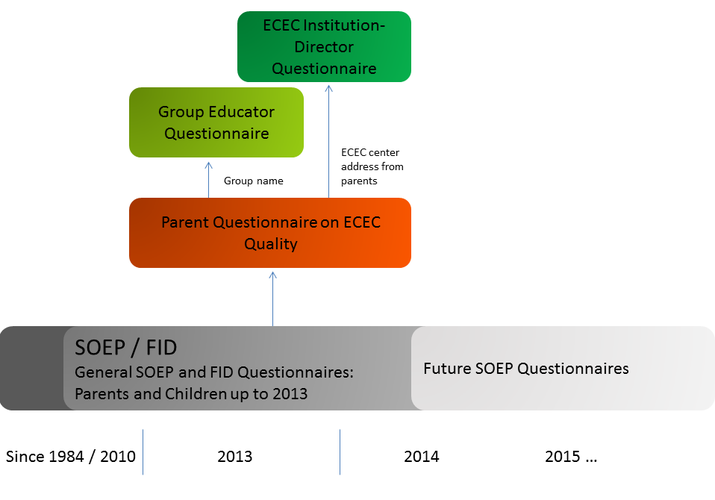Research design K²ID-SOEP
Data structure

The data collection of K2ID is based on participants of the Socio-Economic Panel (SOEP). In addition, participants of the “Families in Germany” (FID) study (which is in the process of being integrated with the SOEP) were also included in the sampling frame. From this group of people those with one or more children below school age at the date of the survey were given an additional questionnaire concerning their child care arrangements with a focus on quality. In case they used an ECEC institution they were also asked to provide the address of this institution and, if applicable to identify the specific group which their children attend. In a second step the ECEC institution directors and group educators were also given a questionnaire to collect additional information on quality in the respective setting.
Research questions

The combination of current background information of the parents, their child care decisions and the information from the institutions allows answering the research questions about socio-economic selectivity of parental choices of ECEC quality and about information asymmetries with respect to ECEC quality. SOEP waves in the near future will allow exploring effects of ECEC quality on maternal employment and on the wellbeing of parents and children in the short-term. In the long term the data will make it possible to look at effects of ECEC quality on children not only during early childhood but also during school years and finally into adulthood.